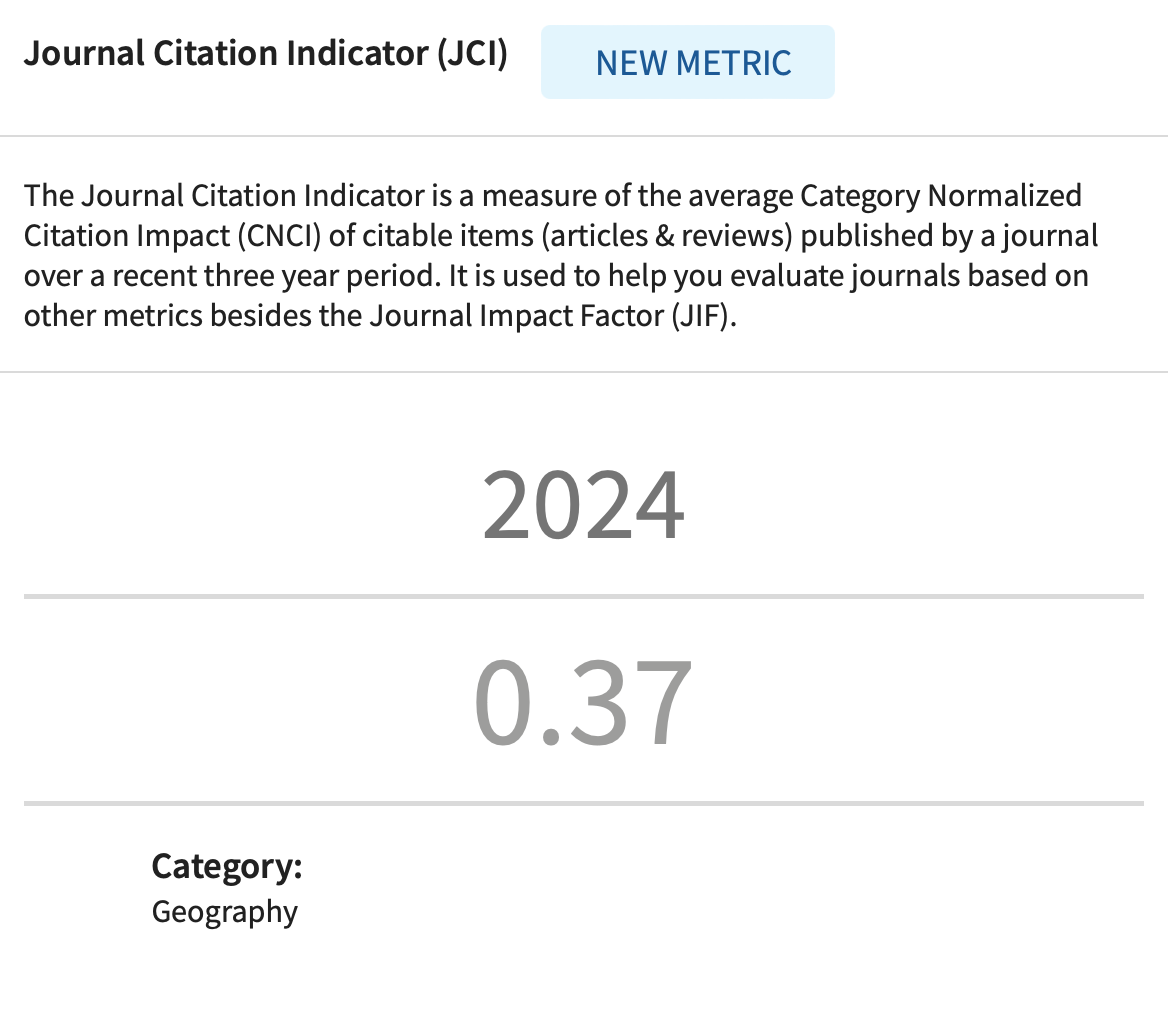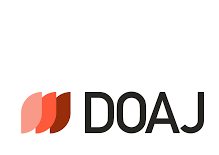EUROPEAN CAPITAL OF CULTURE PLOVDIV 2019: EFFECTS THROUGH THE LENS OF THE LOCAL COMMUNITY
DOI:
https://doi.org/10.2298/IJGI2301049DKeywords:
European Capital of Culture, impacts assessment, residents’ perceptions, Plovdiv (Bulgaria)Abstract
The paper deals with the impacts of hosting the European Capital of Culture (ECOC) by the Bulgarian city of Plovdiv in 2019 through the lens of the local community. Based on a survey conducted in 2021 with 444 residents, the perceived effects of the initiative were discussed in four domains: (1) Cultural, (2) Economic, (3) Social, and (4) Urban environment and atmosphere. Descriptive statistics techniques and analysis of variance were applied to interpret the data and outline the differences in the perceptions affected by respondents’ socio-demographic characteristics. The findings indicate that in general, the ECOC impacts are perceived rather positively, although the locals are hesitant if benefits outweigh the costs incurred. None of the impacts is perceived as high by the survey participants, with mean values of agreement hardly reaching four on a 5-grade scale. The most recognized positive effects refer to the city’s cultural life and the opportunities for local artists to perform; next come benefits for tourism development and promotion along with improvements in urban environment and infrastructure resulting from the ECOC implementation. Less clearly perceived are negative effects such as the price rise and the preference given to tourists over the locals. Significant differences in perceptions are determined by respondents’ education, personal involvement in the ECOC organization, age, gender, and sphere of professional activity. However, such differences are found in roughly half of all 22 statements under study, meaning that certain perceptions depend on the socio-demographic profile while others do not.
Article metrics
References
Andriotis, K. (2000). Local community perceptions of tourism as a development tool: the island of Crete [Doctoral dissertation]. Boutrnemouth University. http://eprints.bournemouth.ac.uk/401/1/Konstantinos_Andriotis.pdf
Baltaci, F., & Cevirgen, A. (2020). The impacts of second home tourism on socio-cultural and economic life: The residents’ perspectives. Journal of the Geographical Institute “Jovan Cvijić“ SASA, 70(3), 273–288. https://doi.org/10.2298/IJGI2003273B
Brankov, J., Jovičić, D., & Milijašević, D. (2015). Sustainable tourism in National Park "Đerdap", Serbia - Attitudes of local population. Journal of the Geographical Institute “Jovan Cvijić“ SASA, 65(2), 183–199. https://doi.org/10.2298/IJGI1502183B
Burksiene, V., Dvorak, J., & Burbulyte-Tsiskarishvili, G. (2018). Sustainability and Sustainability Marketing in Competing for the Title of European Capital of Culture. Organizacija, 51(1), 66–78. https://doi.org/10.2478/orga-2018-0005
Chen, C.-F., & Chen, P.-C. (2010). Resident Attitudes toward Heritage Tourism Development. Tourism Geographies: An International Journal of Tourism Space, Place and Environment, 12(4), 525–545. https://doi.org/10.1080/14616688.2010.516398
Cholakova, S. D., & Dogramadjeva, E. D. (2019). Climate change and the future of Pamporovo ski resort Bulgaria. The view of the local population. European Journal of Geography, 10(2), 56–76. https://www.eurogeojournal.eu/index.php/egj/article/view/176/134
Dogramadjieva, E. (2002, November 29–30). Otnoshenie kŭm ustoĭchivoto razvitie i planiraneto na turizma v obshtinite Teteven, Troyan i Apriltsi [Attitudes to sustainable development and tourism planning in the municipalities of Teteven, Troian and Apriltzi]. Yubileĭna nauchna konferentsiya “Turizmat prez XXI vek” [Jubilee Scientific Conference "Tourism in the 21st Century"], Sofia, Bulgaria. https://www.researchgate.net/publication/369335181
Dogramadjieva, E. (2003). Kontseptsiya za ustoĭchivo turistichesko razvitie v obshtinite Teteven, Troyan i Apriltsi [Concept for sustainable tourism development in the municipalities of Teteven, Troyan and Apriltsi; Doctoral dissertation, Sofia University “St. Kliment Ohridski”]. Baza danni za nauchnata deĭnost na Sofiĭski universitet "Sv. Kliment Okhridski" [Database for the scientific activity of Sofia University "St. Kliment Ohridski"]. https://authors.uni-sofia.bg/AuthorPublications.aspx?id=ae458892-1063-4efd-961b-92e7a8ebb780
Draghici, C., Papuc, R. M., Iordache, S., Dobrea, R. C., Pintilii, R.-D., Teodorescu, C., Peptenatu, D., Diaconu, D., & Simion, A. (2015). The Role of European Capital of Culture Status in Structuring Economic Profile of Sibiu, Romania. Procedia Economics and Finance, 26, 785–791. http://dx.doi.org/10.1016/S2212-5671(15)00870-9
Dragićević, V., Bole, D., Bučić, A., & Prodanović, A. (2015). European capital of culture: residents' perception of social benefits and costs – Maribor 2012 case study. Acta Geographica Slovenica, 55(2), 283–302. https://doi.org/10.3986/AGS.747
European Commission. (n.d.). European Capitals of Culture. https://culture.ec.europa.eu/policies/culture-in-cities-and-regions/european-capitals-of-culture
European Commission, Directorate-General for Education, Youth, Sport and Culture. (2015). European capitals of culture: 30 years. https://doi.org/10.2766/8832
Falk, M., & Hagsten, E. (2017). Measuring the impact of the European Capital of Culture programme on overnight stays: evidence for the last two decades. European Planning Studies, 25(12), 2175–2191. https://doi.org/10.1080/09654313.2017.1349738
Farmaki, A., Christou, P., Saveriades, A., & Spanou-Tripinioti, E. (2019). Perceptions of Pafos as European Capital of Culture: Tourism stakeholder and resident perspectives. International Journal of Tourism Research, 21(2), 234–244. https://doi.org/10.1002/jtr.2257
Fox, T., Mobilio, L., Pavlova, A., & Goffredo, S. (2020). Ex-post evaluation of the 2019 European capitals of culture: final report. Publications Office of the European Union. https://doi.org/10.2766/30822
Garcia, B., & Cox, T. (2014). European capitals of culture: Success strategies and long-term effects. Publications Office of the European Union. https://doi.org/10.2861/4689
Garcia, B., Melville, R., & Cox, T. (2010). Creating an impact: Liverpool’s experience as European Capital of Culture. https://www.liverpool.ac.uk/media/livacuk/impacts08/pdf/pdf/Creating_an_Impact_-_web.pdf
Giovanangeli, A. (2015). Marseille, European Capital of Culture 2013 Ins and Offs: A case for rethinking the effects of large-scale cultural initiatives. French Cultural Studies, 26(3), 302–316. https://doi.org/10.1177/0957155815587236
Gomes, P., & Librero-Cano, A. (2018). Evaluating three decades of the European Capital of Culture programme: A difference-in-differences approach. Journal of Cultural Economics, 42, 57–73. https://doi.org/10.1007/s10824-016-9281-x
Grmuša, M., Šušnjar, S., & Lukić Tanović, M. (2020). The attitudes of the local population toward the importance of cultural and historical heritage. Journal of the Geographical Institute “Jovan Cvijić“ SASA, 70(3), 299–307. https://doi.org/10.2298/IJGI2003299G
Herrero, L. C., Sanz, J. Á., Devesa, M., Bedate, A., & del Barrio, M. J. (2006). The Economic Impact of Cultural Events: A Case-Study of Salamanca 2002, European Capital of Culture. European Urban and Regional Studies, 13(1), 41–57. https://doi.org/10.1177/0969776406058946
Izlakar, B., & Artič, N. (2010, May 07). The impact of European Capital of Culture on tourism expenditure. 7th International scientific conference Management in the function of increasing the tourism consumption, Opatija, Croatia. https://www.academia.edu/11729421/THE_IMPACT_OF_EUROPEAN_CAPITAL_OF_CULTURE_ON_TOURISM_EXPENDITURE
Kovačić, S., Vujičić, M. D., Čikić, J., Šagovnović, I., Stankov, U., & Zelenović Vasiljević, T. (2021). Impact of the European Capital of Culture Project on the Image of the city of Novi Sad - The Perception of the Local Community. Turizam, 25(2), 96–109. https://doi.org/10.5937/turizam25-27480
Kővári, E., & Raffay-Danyi, Á. (2022). Can festivals bring social change in an ECoC city? Emotional intelligence and willingness to volunteer among university students. Journal of Policy Research in Tourism, Leisure and Events, 14(3), 279–295. https://doi.org/10.1080/19407963.2022.2087663
Liu, Y.-D. (2019). The Cultural Legacy of a Major Event: A Case Study of the 2008 European Capital of Culture, Liverpool. Urban Science, 3(3), Article 79. https://doi.org/10.3390/urbansci3030079
Marinov, V., & Vodenska, M. (1995). Kŭm problema za klasifikatsiyata na vliyaniyata na turizma [To the problem of tourism impacts’ classification]. Annual of Sofia University “St. Kliment Ohridski”: Faculty of Geology and Geography: Book — Geography, 87, 321–340.
Mathieson, A., & Wall, G. (1982). Tourism: economic, physical and social impacts. Longman.
Murphy, P. E. (1983). Tourism as a community industry—an ecological model of tourism development. Tourism Management, 4(3), 180–193. https://doi.org/10.1016/0261-5177(83)90062-6
Nosková, M. (2016). Regional economic effects of the European capital of culture project: the use of input-output analysis. Economics, 19(3), 57–74. https://doi.org/10.15240/tul/001/2016-3-005
Palmer, R. (2004). European Cities and Capitals of Culture: Study Prepared for the European Commission, Part I. Palmer-Rae Associates.
Palmer, R., & Richards, G. (2009). European Cultural Capital Report 2. Association for Tourism and Leisure Education.
Plovdiv 2019 Foundation. (2014) Plovdiv 2019 – Application form – final stage. https://issuu.com/plovdiv2019/docs/plovdiv2019app
Remoaldo, P. C., Vareiro, L., Ribeiro, J. C., Santos, J. F. (2016). Resident’s Perceptions on Impacts of Hosting the Guimarães 2012 European Capital of Culture: Comparisons of the Pre- and Post Periods. In: Á. Matias, P. Nijkamp, & J. Romão (Eds.), Impact Assessment in Tourism Economics (pp. 229–246). https://doi.org/10.1007/978-3-319-14920-2_16
Richards, G. (2008). Luxembourg and Greater Region, European Capital of Culture 2007: Final Report. https://www.researchgate.net/publication/345506204_Luxemburg_2007_Cultural_Capital_final_evaluation_report
Richards, G., & Rotariu, I. (2011). Ten Years of Cultural Development in Sibiu: The European Cultural Capital and Beyond. The Association for Tourism and Leisure Education (ATLAS). https://mpra.ub.uni-muenchen.de/31167/1/MPRA_paper_31167.pdf
Santos, J. F., Vareiro, L., Remoaldo, P C. A., & Ribeiro, J. C. (2015). Mega cultural events: Does attendance affect residents’ perceptions of a city’s identity? (NIPE Working Paper No. 10). https://hdl.handle.net/1822/37254
Saunders, M., Lewis, P., & Thornhill, A. (2007). Research Methods for Business Students (4th ed.). Financial Times Prentice Hall.
Tavakol, M., & Dennick, R. (2011). Making sense of Cronbach’s alpha. International Journal of Medical Education, 2, 53–55. https://doi.org/10.5116/ijme.4dfb.8dfd
Tilov, B. (2019). Anketno prouchvane sred potrebitelite na ESK – Plovdiv 2019 [Survey among the users of European Capital of Culture – Plovdiv 2019]. In Z. Grigorova (Ed.), Sustainable development and competitiveness of regions. Vol. 2 (pp. 290–297). Talant.
Tsagkaridis, K., Cavalleri, F., & Flora, K. (2021). Decision-Makers’ Cultural Influence on the Implementation of the European Capital of Culture: A Longitudinal Study. https://doi.org/10.31234/osf.io/qwh6r
Turșie, C., & Perrin, T. (2020). Assessing the social and cultural impacts of the European Capital of Culture programme in cross-border regions. A research agenda. Eastern Journal of European Studies, 11, 77–98. https://ejes.uaic.ro/articles/EJES2020_11SI_TUR.pdf
van der Steen, T., & Richards, G. (2021). Factors affecting resident support for a hallmark cultural event: the 2018 European Capital of Culture in Valletta, Malta. Journal of Policy Research in Tourism, Leisure and Events, 13(1), 107–123. https://doi.org/10.1080/19407963.2019.1696352
Vodenska, M. (2001). Ikonomicheski, sotsialni i prirodni vliyaniya na turizma [Economic, social and environmental impacts of tourism]. Sofia University “St. Kliment Ohridski” Publishing House.
Vodenska, M. (2006). Turizŭm i obshtestvo [Tourism and society]. MVBU.
Vodenska, M., & Mihalkova, D. (1998). Sŭshtnost i modeli na sotsialnite vliyaniya na turizma [Essence and models of the social impacts of tourism]. Annual of Sofia University “St. Kliment Ohridski”: Faculty of Geology and Geography: Book—Geography, 91, 195–207.
Vujičić, M. D., Stankov, U., Pavluković, V., Štajner-Papuga, I., Kovačić, S., Čikić, J., Milenković, N., & Zelenović Vasiljević, T. (2023). Prepare for Impact! A Methodological Approach for Comprehensive Impact Evaluation of European Capital of Culture: The Case of Novi Sad 2022. Social Indicators Research, 165(2), 715–736. https://doi.org/10.1007/s11205-022-03041-1
Žilič Fišer, S., & Kožuh, I. (2019). The Impact of Cultural Events on Community Reputation and Pride in Maribor, The European Capital of Culture 2012. Social Indicators Research, 142(3), 1055–1073. https://doi.org/10.1007/s11205-018-1958-4
Downloads
Published
How to Cite
Issue
Section
License
Copyright (c) 2023 Journal of the Geographical Institute “Jovan Cvijić” SASA

This work is licensed under a Creative Commons Attribution-NonCommercial-NoDerivatives 4.0 International License.











